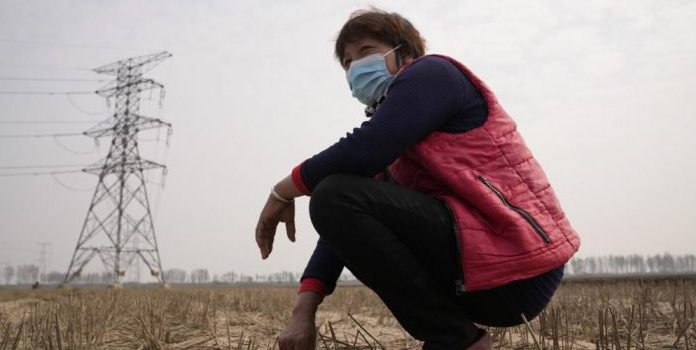China has been stockpiling grain on behalf of its 1.4 billion people as it struggles with mismanagement of its agricultural industry and more farmers flee the country for life in the city increasing concern that famine could overtake the country.
“China spent $98.1 billion importing food (beverages are not included) in 2020, up 4.6 times from a decade earlier, according to the General Administration of Customs of China,” reported news site Nikkei Asia. “In the January-September period of 2021, China imported more food than it had since at least 2016, which is as far back as comparable data goes.”
At some point, maybe the hoarding of grain, fertilizers, feed ingredients, and protein might be considered a signal that PRC is planning something that would result in a high likelihood of maritime embargo (or disruption to normal trade flows)?https://t.co/cw0Qjg3FVy
— HUNTSMAN ?? (@man_integrated) December 27, 2021
And China has been hoarding more than just grain, too.
“China seems to be on a ‘hoarding spree,’” said EpochTimes, “stockpiling strategic commodities from chips, minerals to grains and cotton. In its global purchases, the United States is one of its largest suppliers.”
China boast’s 20% of the world’s population but only 7% of the world’s arable land. Not enough land in agricultural production, combined with chronic mismanagement of the country’s supply of food-producing animals, has created a constant crisis atmosphere for China.
Prior to the global COVID pandemic that started in Wuhan, China, the Middle Kingdom faced food shortages as a result of African swine flu epidemics in the pork industry, reducing the amount of hogs in national farms by more than half in 2019 even as COVID incubated there.
“China’s hog herd fell by half in the first eight months of 2019 due to a devastating outbreak of African swine fever and will likely shrink by 55% by the end of the year, analysts at Rabobank said on Wednesday,” according to CNBC.
Pork, which is a considered a measure of prosperity in China, saw prices soar to record highs in 2019 and 2020 as a result.
Food security takes on added meaning for a Communist ruling party that hangs its legitimacy on keeping people safe, even if violating their civil liberties, during a time that China finds other countries more reluctant to do business with them.
“Chinese in their 50s and older experienced food shortages during the Cultural Revolution (1966 to 1976),” said Nikkei Asia. “Throughout history, food shortages have triggered popular unrest. They served as a contributing factor to uprisings that toppled Chinese dynasties.”
Some experts are warning that China is attempting to control world markets by stockpiling commodities such a food, so they can weaponize them.
“None of the constraints that convinced academics of the futility of the ‘food weapon’ in the late 1970s inhibit China today,” Christopher Vassallo a researcher at the Asia Society Policy Institute said in National Interest. “Instead, the three main features of China’s commodity market—its enormous scale, its strategic steering, and its supervisory capacity—mean China can use the power of its market in ways that exceeded twentieth-century American or Soviet capability.”

